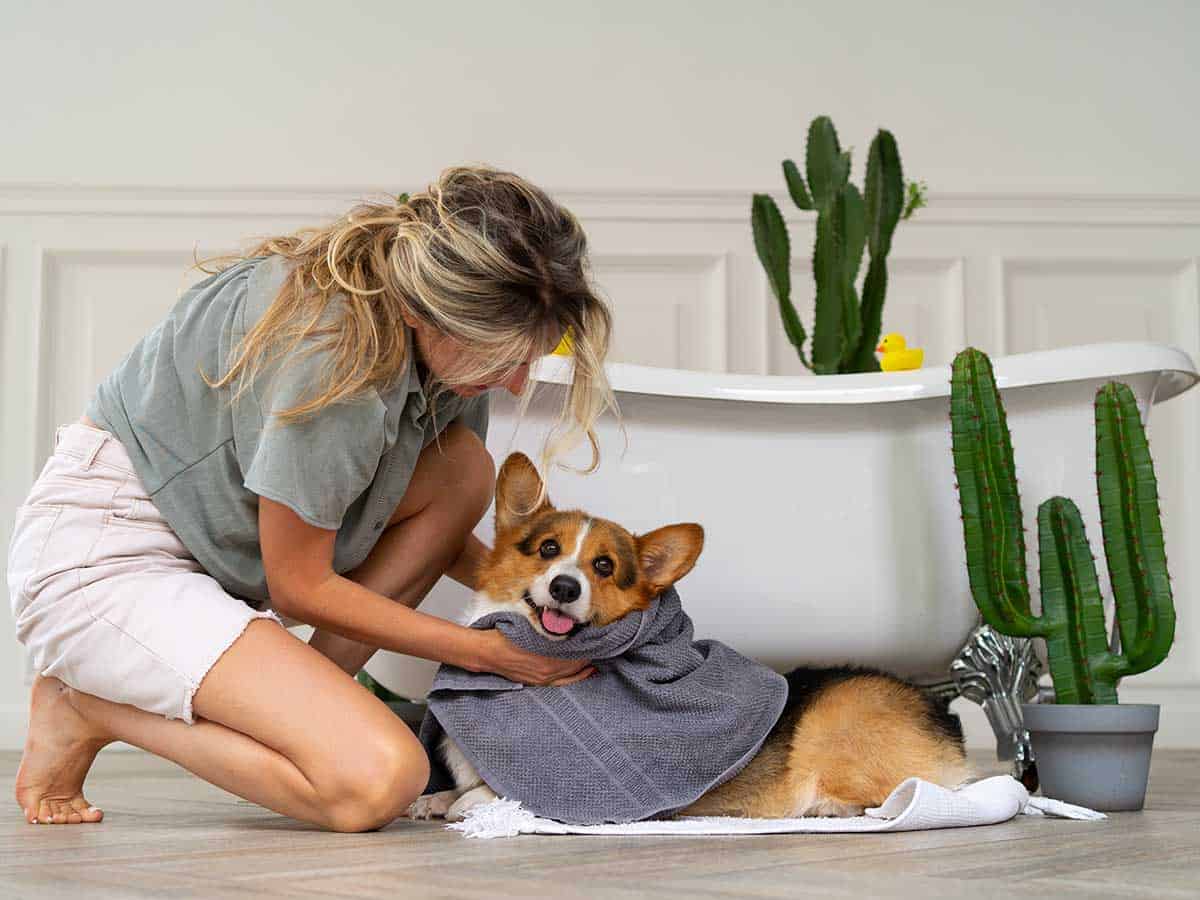Embarking on the journey of welcoming a new puppy into your home is an exhilarating experience filled with anticipation and joy. The mere thought of those furry paws and endearing eyes can make any heart swell with affection. However, amidst the excitement, a crucial question looms for every prospective pet parent: “How long does it take to potty train a puppy?” In this comprehensive guide, we’ll delve into the intricacies of potty training, exploring effective strategies and shedding light on the variable factors that influence the timeline. So, please grab a cup of coffee, settle into your favorite chair, and unravel the mysteries of potty training together. The anticipation of bringing a puppy home is akin to preparing for a new chapter in your life. The laughter, playfulness, and companionship that a puppy brings are unparalleled. Yet, as any seasoned dog owner will attest, the early days of puppyhood come with their fair share of challenges, with potty training often topping the list. As you eagerly await the arrival of your new furry family member, it’s natural to wonder about the intricacies of potty training. How long will it take for your puppy to grasp the concept? Will there be sleepless nights and endless clean-up sessions? Rest assured, while the journey may have its bumps; the destination is a well-behaved and house-trained companion. Before we dive into the specifics of the potty training timeline, let’s take a moment to understand the myriad variables that can influence the process. Your puppy’s breed, age, and individual personality are critical determinants in shaping the duration of the training journey. Different breeds come with distinct characteristics, including varying levels of intelligence and stubbornness. Some breeds may be quick learners, always picking up on commands and routines, while others may require more patience and persistence. Understanding your puppy’s breed-specific traits can provide valuable insights into their learning curve. Age is another critical factor in the equation. Much like human babies, puppies undergo developmental stages that impact their ability to learn and adapt. While younger puppies may need more frequent bathroom breaks, older ones might be able to hold their bladder for more extended periods, facilitating a more predictable training routine. Consistency is the linchpin of successful potty training. Establishing a consistent routine helps your puppy understand expectations and reinforces positive behaviors. Consistency in feeding times, outdoor breaks, and designated potty areas creates a structured environment that accelerates learning. Now that we’ve laid the groundwork for understanding the variables at play let’s embark on a detailed exploration of the general timeline for potty training. From the initial weeks of introducing your puppy to the concept to the subsequent stages of refining their skills, we’ll navigate the highs and lows of this essential aspect of puppy parenthood. So, let’s roll up our sleeves and prepare for an in-depth look at potty training that will empower you to guide your puppy toward success. Breed Considerations The diverse world of dog breeds introduces a fascinating array of characteristics, influencing how quickly a puppy may become proficient in potty training. Understanding these breed-specific traits can offer valuable insights and guide your approach to training. Intelligence Levels: Different breeds exhibit varying levels of intelligence. Some breeds, such as the Border Collie or Poodle, are renowned for their high intelligence and quick learning abilities. These breeds often grasp commands and routines faster, translating to a potentially shorter potty training period. On the other hand, breeds with lower intelligence, such as the Bulldog or Basset Hound, may require more time and patience. Stubbornness Factor: Stubbornness can be a hurdle or a trait to navigate, depending on the breed. Certain breeds, like the Dachshund or Shiba Inu, are known for their independent nature, which may pose a challenge during training. Patience and consistent positive reinforcement become crucial when working with a more stubborn breed. Sensitivity and Eagerness to Please: Breeds with a high sensitivity to their owner’s commands and a strong desire to please, such as the Golden Retriever or Labrador Retriever, often excel in potty training. These dogs are motivated by positive reinforcement and thrive on the approval of their owners. Physical Stamina: The physical stamina of a breed can also play a role in potty training. High-energy breeds, like the Australian Shepherd or Siberian Husky, may require more frequent outdoor breaks due to their active nature. Providing ample exercise can help channel their energy positively and contribute to a smoother training process. Understanding your puppy’s breed-specific characteristics is the first step in tailoring your approach to potty training. By recognizing their inherent traits, you can adjust your expectations and implement a training strategy aligning with their needs.In the following sections of this guide, we’ll explore the age factor and the significance of consistency in establishing a successful potty training routine. Stay tuned as we unravel the comprehensive roadmap to achieving potty training success with your new furry friend. Age Matters As we transition to the age factor, it’s essential to recognize that puppies, much like human infants, undergo critical developmental stages that impact their ability to learn and adapt. The age at which you start potty training can significantly influence the speed at which your puppy grasps the concept. Early Weeks (8-10): Initial Training: During the first few weeks after bringing your puppy home, focus on introducing them to potty training. Remember that young puppies have limited bladder control and may need frequent outside trips. Patience is vital as your puppy adapts to their new surroundings. Weeks 10-16: Establishing Routine: As your puppy reaches the 10 to 16-week mark, they gain better control over their bladder. This period is ideal for establishing a consistent feeding and potty schedule. Take them outside after meals, after waking up, and before bedtime to reinforce the association between outdoor breaks and bathroom needs. Weeks 16-24: Refining Skills: By the 16 to 24-week stage, your puppy should be getting the hang of potty training. They can hold their bladder for extended periods, making it easier to

